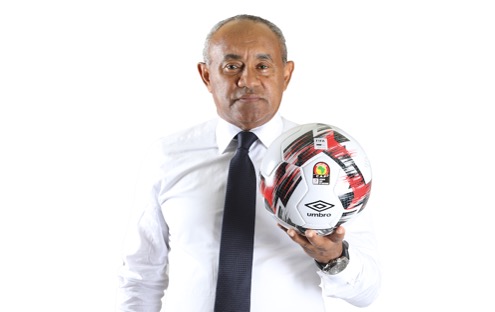FIFA on Monday barred the top official in African soccer from the sport for five years, upending the leadership of one of its six regional confederations only months before a presidential election and offering a new reminder that corruption continues to plague global soccer even at its most senior levels.
The punishment of the official, Ahmad Ahmad, who had been the president of the Confederation of African Football and a FIFA vice president since 2017, was related to his conduct from 2017 to 2019, according to a statement released by FIFA’s ethics body. Ahmad was found guilty of breaching four separate articles of the organization’s ethics code, its statement said, including abuse of office, misappropriation of funds and rules concerning the offering and acceptance of gifts.
His ban will disqualify him from standing for a new term early next year, but Ahmad escaped with a shorter ban than another African official who was deemed to have violated one of the same rules.
The decision was announced more than a year after FIFA received complaints of wrongdoing by Ahmad, and 17 months after he was arrested and questioned by French investigators about corruption allegations related to an apparel contract. In its statement, FIFA said part of its investigation into Ahmad’s conduct in office was linked to that deal. Ethics investigators also looked into the financing of a pilgrimage trip for a number of African officials to the Saudi Arabian holy city of Mecca.
Ahmad’s ban means five of FIFA’s six global confederations have had to replace leaders accused of ethical violations since 2015, when a sprawling U.S. Department of Justice indictment revealed widespread corruption in the Americas and the Caribbean. FIFA’s president, Gianni Infantino, swept to power a year later, pledging to rid the organization of the culture of corruption that had stained its image and brought down his predecessor.
Ahmad had been one of the new breed of leaders that arrived in the wake of the scandals. With the backing of Infantino, who spent significant political capital lobbying on behalf of the then little known politician from a soccer backwater, Madagascar, Ahmad ousted Issa Hayatou, a towering figure in African soccer who had ruled the sport on the continent — and wielded great influence as a top FIFA executive — for more than two decades.
But under Ahmad’s leadership, CAF soon plunged into regular bouts of chaos and infighting. The problems peaked in 2019 when Ahmad fired the organization’s most senior administrator, the secretary general Amr Fahmy, and other top executives. Fahmy, who died of cancer this year, was among the officials who had provided FIFA with evidence against Ahmad; the accusations included not only financial misdeeds but claims of sexual harassment made by female staff members and consultants.
Ahmad called the allegations an effort to smear his reputation, and later denied wrongdoing in the French corruption investigation.
Ahmad did not respond to a request for a comment about his ban, which he can appeal at the Court of Arbitration for Sport. He is currently on medical leave after contracting the coronavirus.
Ahmad’s departure leaves four candidates to replace him when CAF holds its presidential elections on March 12. Until then, the organization will be run by its senior vice president, Constant Omari of Congo, who faces his own ethics investigation over a television deal that he and Ahmad revised in a way that appeared to have benefited CAF’s broadcast partners at a cost of millions of dollars to African soccer.
Ahmad is also implicated in that investigation and could face further penalties as a result. In addition to his five-year ban, FIFA also fined Ahmed about $220,000.
FIFA ethics investigators are also looking into the conduct of other African officials. Leaked emails and documents have shown how some regional soccer leaders sought to receive payments from CAF to be routed into their private bank accounts instead of through their federations, and an audit completed earlier this year could not account for millions of dollars in development funds.
The 55-page report, completed by consultants from PwC, said “potential elements of mismanagement and possible abuse of power were found in key areas of finance and operations.” It provided yet another reminder of the challenges of reforming the governance of world soccer, which was rocked in 2015 when the United States filed a sweeping indictment that laid out in vivid detail accusations of decades of corruption and wrongdoing by some of the sport’s most senior administrators.
.
By Tariq Panja, 23 November 2020, published on The New York Times,
Photo (edited): Bernard Ailier, CC BY-SA 4.0, via Wikimedia Commons






